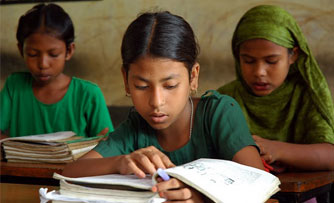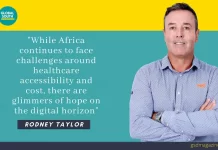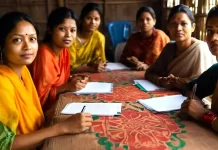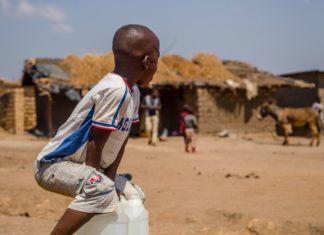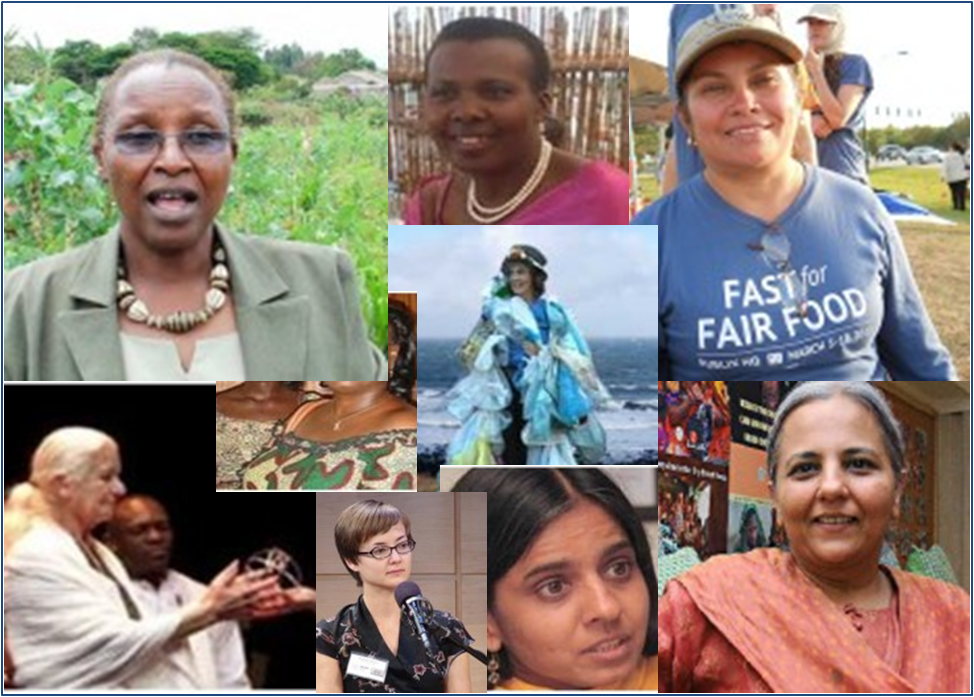By Aparna Patankar
When speaking at a special event at the United Nations last September, Secretary-General Ban Ki-Moon told the audience that aid for education had dropped for the first time in a decade. He urged them to see that although much progress has been made in spreading access to education since the adoption of the millennium development goals, there was still much more to be done. He pointed out that conflict ridden countries still remain unaffected by much of the work done to achieve the MDGs, explaining for these unstable countries house as much as half of all children lacking education[1].
The Secretary-General’s message echoes what was written in “A New Global Partnership: Eradication Poverty and Transform Economies Through Sustainable Develop”, the report of the High-Level Panel of Eminent Persons on the Post-2015 Development Agenda. This report also emphasizes that great progress has been made on each of the eight millennium development goals and that since their adoption, half billion fewer people are living in poverty, deaths from malaria have fallen by twenty-five percent, and 590 million children in developing countries – a record high – attended primary school[2].
However, it stresses that much more must be done, as the work surrounding the MDGs has not done enough to lift all people out of poverty and in fact often missed the populations that were most in need. In the report, the Panel urges the global community to keep faith in the original aims of the MDGs and complete what they set out to accomplish by moving beyond reducing extreme poverty to ending it, in all its forms.
See Also: Fighting Poverty in Guatemala: Importance of Public Investment in Education
The Panel believes that for the first time, the global community has the opportunity to end extreme poverty by 2030, by designing smart goals, properly sharing responsibility, and vowing to ensure that every person has basic economic opportunities and human rights. In deepening and expanding our efforts to fight poverty, continuing to invest in education is vital. In this report, the High Level Panel outlines twelve illustrative goals, and education is the first step towards progress on each: The twelve goals:
- End poverty
- Empower girls and women and achieve gender equality
- Provide quality education and lifelong learning
- Ensure healthy lives
- Ensure food security and good nutrition
- Achieve universal access to water and sanitation
- Secure sustainable energy
- Create jobs, sustainable livelihoods, and equitable growth
- Manage natural resource assets sustainably
- Ensure good governance and effective institutions
- Ensure stable and peaceful societies
- Create a global enabling environment and catalyze long-term finance
The third goal directly addresses education, advocating for widespread access to not only primary but also pre-primary and lower secondary education and setting the target that children worldwide are meeting minimum learning standards. Though seemingly disconnected, the Panel explains how this education centered goal and all the others are actually intertwined. Providing widespread access to education will also contribute to each of the other goals, such as ending poverty by teaching children the skills they need to earn a livelihood and provide for their families.
Education also fights the discrimination that leads to violence against women and informs girls of their rights and empowers them to exercise them. Formal and informal education also teaches people how to keep their water sources clean, fight malnutrition, use health services effectively, and prevent and treat disease. Focused education programs can also teach sustainable agriculture practices, demonstrate how to survive natural disasters, and encourage people to phase out fossil fuels. Together, each of these benefits of education cultivate more stable and peaceful societies.
Strong education systems are the foundations upon which we can build the structures and programs to eradicate poverty. Despite its recognized importance in achieving any and all of the goals outlined in the MDGs and by the High Level Panel, aid to education systems’ is in decline. Many people around the world seem to be crossing it off the list, now that the MDGs have provided millions of children around the world with education, but there is so much more to be done.
As the Secretary-General, and the report explain, conflict-ridden zones have not been reached by the education programs and services created following the adoption of the MDGs. The post-2015 development agenda must do much more to reach these children and communities, as “28 million children in countries emerging from conflict are still not in school, and in twenty countries, at least one in five children has never even been to school.” The Panel urges the world to recognize this undelivered promise of the MDGs. With this investment in education, the global community can deliver on each of the other goals and targets outline in our shared development agenda.
As UN Educational, Scientific, and Cultural Organization (UNESCO) Director-General, Irina Bokova stated, “Cutting back on education means cutting the most powerful investment a country can make. Reducing aid to education means undermining the sustainability of all development[3].” Ensuring that all children are receiving an education and actually learning the skills that they need for success and citizenship in today’s interconnected world will unlock the possibility of ending poverty by the year 2030. The global community must come together and demand that we make this critical investment and continue providing necessary education aid to developing countries around the world.
[1] “Speakers at UN Event Urge Stronger Leadership, More Financing to Ensure Education for All.” UN News Center. UN, 25 Sept. 2013.
[2]A New Global Partnership: Eradicate Poverty and Transform Economies through Sustainable Development. Rep. New York: United Nations Publications, 2013. Print. 1
[3] “Speakers at UN Event Urge Stronger Leadership, More Financing to Ensure Education for All.” UN News Center. UN, 25 Sept. 2013.
(This article originally appeared in Global South Development Magazine’s November 2013 edition)



